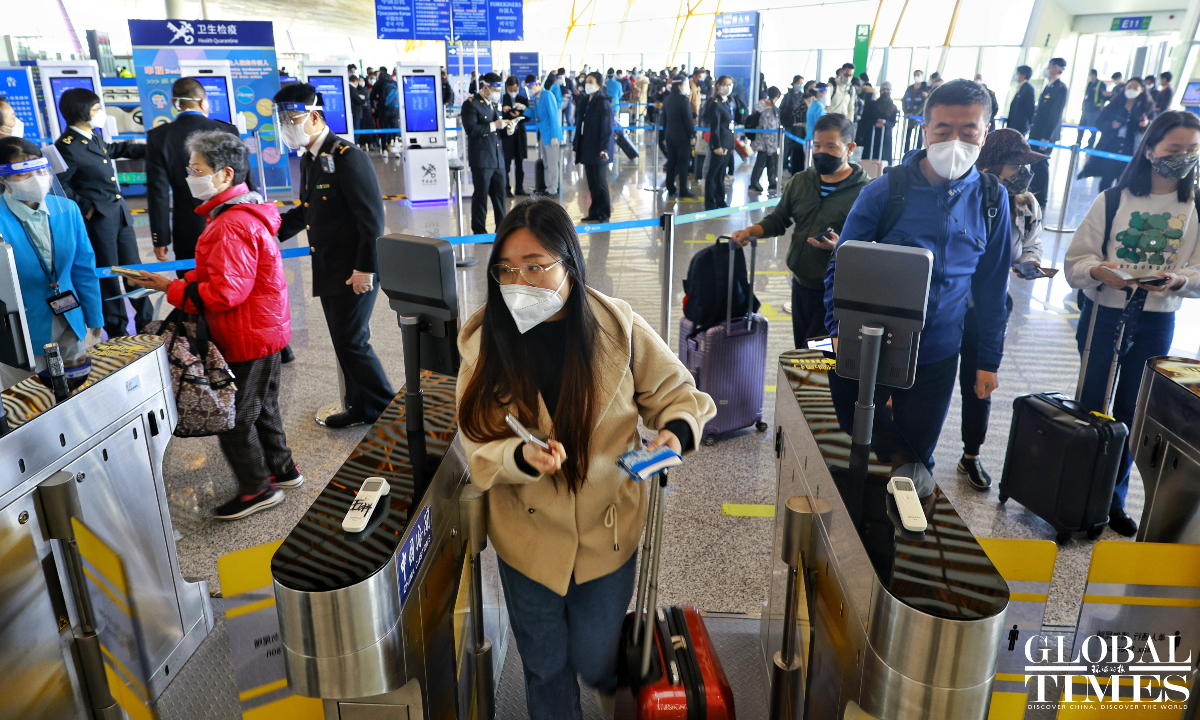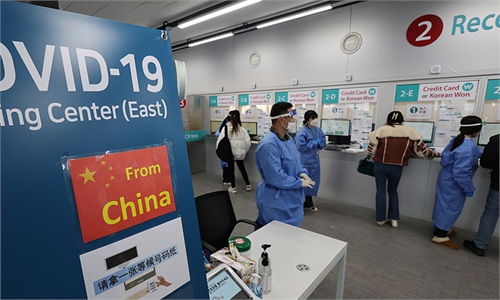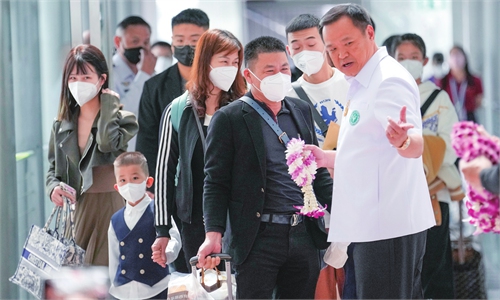FM urges countries including S.Korea to promptly lift discriminatory measures against travelers from China

Chinese Foreign Ministry spokesperson Mao Ning Photo:fmprc.gov.cn
China firmly opposed politicizing COVID-19 epidemic prevention and control, the Chinese Foreign Ministry reiterated on Monday, urging individual countries to lift their discriminatory measures against China arrivals.
South Korea said it will continue to restrict the entry of short-term travelers from China through the end of February over the so-called concerns that the spread of COVID-19 in South Korea may worsen following the Chinese New Year holidays, media reported on Friday.
In response, Mao Ning, the Chinese Foreign Ministry spokesperson, said at a routine press briefing on Monday that in January, certain countries announced temporary epidemic measures for travelers from China. China has taken relevant measures based on the principle of reciprocity in accordance with different circumstances.
Mao said that South Korea's extension of its decision to stop issuing short-term visas at its consulates in China is not conducive to personnel exchanges and cooperation between the two countries. We hope that South Korea will end the unreasonable moves as soon as possible, she said, noting that China is ready to take corresponding measures to facilitate personnel exchanges between the two countries on this basis.

Photo: Li Hao/GT
France has also extended mandatory COVID-19 tests for travelers from China until February 15, Reuters reported on Saturday, citing a government decree.
Mao said on Monday that China has stressed on many occasions that it opposes any discriminatory measures against travelers from China that disregard scientific facts, and urges the relevant countries to remove such unreasonable measures as soon as possible.
Japan was one of the first countries that imposed similar entry restrictions after China downgraded its COVID-19 response on January 8, but it quickly changed its policy after its domestic tourism and related industries suffered harshly due to its wrong move of imposing restrictions on travelers from China.
"As the Japanese Embassy in China resumed issuing visas for Chinese nationals, the immigration agencies are now resuming visa applications for Japanese travelers. The 72/144-hour visa-free transit policy will be reinstated," the Chinese National Immigration Administration also said on Sunday.
In response to the latest positive development over exchanges between China and Japan, Mao stressed on Monday that China is ready to work with other parties to create more convenience for normal exchanges between Chinese and overseas personnel. She also noted that China firmly opposes politicizing epidemic prevention and control.
China's Ministry of Foreign Affairs slammed the moves of these countries as not fact- or science-based. COVID-19 response measures should not be used for political manipulation and there should not be any discriminatory measures, they noted.
Facts prove that China witnessed a warm and joyful Spring Festival holiday with its airports, bus terminals and train stations crowded and migrants reuniting with their family members, unlike what some Western media outlets speculated - that the country would experience tsunami-like infections following the Spring Festival travel rush.
A Chinese Center for Disease Control and Prevention (China CDC) report released on Saturday said the number of positive tests reached a peak on December 22, 2022 with 6.94 million, and dropped to a low of 15,000 on January 23, citing reported nucleic acid test results reported by nationwide provincial authorities.
Global Times


